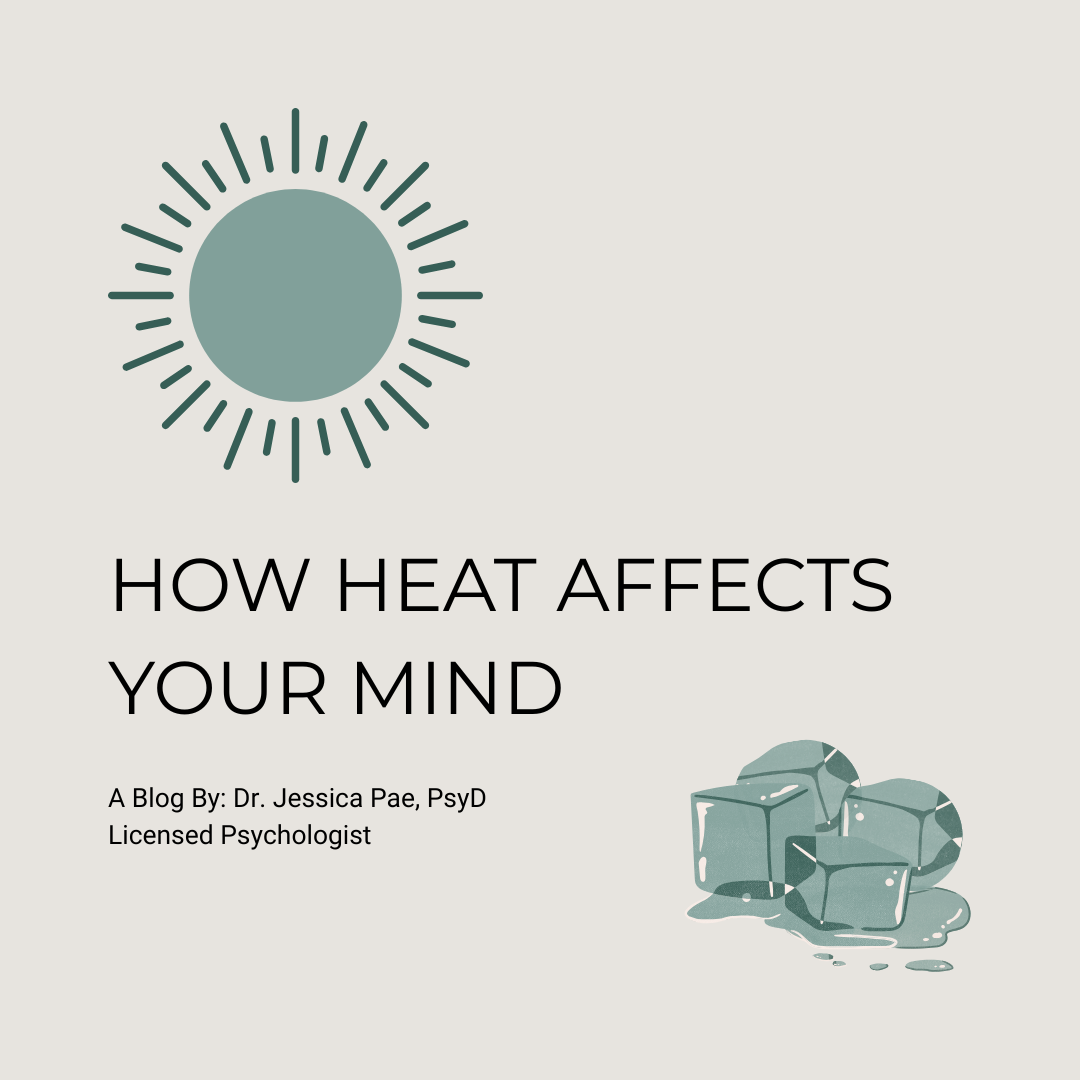How Heat Affects Mental Health and Cognitive Performance
By Dr. Jessica Pae, Psy.D

How Heat Affects Mental Health and Cognitive Performance
Colorado has been experiencing extreme temperatures these past summer months. Heat doesn’t just compromise our physical but mental health as well. Did you know that heat can play a role in influencing our thoughts, emotions, and even the speed at which our brains process information. Here are some of the ways that heat affects our cognitive performance.
Heat and Mental Health Crises
Research shows that on some of the hottest days in the U.S., emergency mental health visits increase by about 8%. Those most impacted often have conditions like anxiety, mood disorders, or stress-related disorders. Extreme heat acts as an environmental stressor, pushing our bodies and minds to work harder to maintain stability.
Summer Depression and Seasonal Affective Disorder
While Seasonal Affective Disorder (SAD) is typically associated with shorter winter days, a lesser-known form occurs in summer. High heat and humidity can disrupt sleep, limit outdoor activity, and create feelings of restlessness or irritability — all of which can contribute to summer-pattern depression.
The Role of Heat Stress in Behavior
Heat doesn’t just affect mood; it can influence behavior. Studies have found that experiencing heat stress at home is linked to higher levels of impulsivity. In other words, uncomfortable indoor environments may make us more likely to act without thinking, especially if our coping resources are already stretched thin. If you are experiencing extra stress lately, reach out to our team of therapists in Centennial, available online and onsite.
Cognitive Slowdown in High Temperatures
Temperature can also impact our ability to think and perform mental tasks. One study found that students living in dorms without air conditioning took 13% longer to complete simple math and word association exercises than their peers in cooler rooms. This suggests that heat can impair concentration, slow reaction times, and reduce problem-solving efficiency.
What We Can Do:
While we can’t control the weather, we can take steps to minimize its psychological impact:
- Stay cool indoors with fans, A/C, or cross-ventilation.
- Hydrate consistently to support brain and body function.
- Pace activities during peak heat hours to prevent physical and mental fatigue.
- Prioritize sleep by creating a cooler sleeping environment.
Hot weather is more than a comfort issue. It’s a mental health concern. By recognizing the link between temperature, mood, and cognition, we can be better prepared to take care of ourselves and others during the hottest months of the year. There are many ways to take care of your well-being, and we are here to support you. At Restoration Psychology, we offer a variety of services designed to help you thrive. Please feel free to contact us to learn more.
Go Back